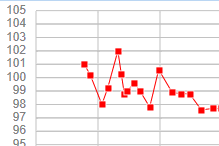Case Presentation: A 39-year-old male with history of end-stage renal disease secondary to focal segmental glomerulosclerosis in addition to severe non-ischemic cardiomyopathy was determined not to be a candidate for kidney transplant in the United States due to his cardiac co-morbidity, and subsequently traveled to Nigeria to receive a kidney transplant from a living relative. After returning to the U.S. he presented with two days of neutropenic fever and headaches. During his hospital course, he mounted cyclical fevers and peripheral blood smear showed parasitemia, confirmed to be Plasmodium falciparum on pathology. He admitted to missing doses of his mefloquine malaria prophylaxis. His mild, uncomplicated malaria was treated with oral artemether/lumefantrine which he had purchased while in Nigeria and brought to the hospital when he himself was suspicious for malaria infection.
Discussion: The prevalence of transplant tourism is increasing in the wake of widely available international travel, and because of substantially lower cost and lack of pre-transplant health qualifications. Transplant tourism raises many concerns, the most disturbing of which is the issue of organ trafficking. It is proposed that “a slippery slope” may start with altruistic donations but devolve into commercial donations and then to frank organ trafficking and exploitation of impoverished persons.In addition to moral and ethical ramifications, there are medical concerns raised by transplant tourism as seen in this case. There is an increased risk of acute rejection among transplant tourists, and the post-transplant course can also be complicated by a risk of reactivation of latent infections, donor-derived infections, and acquiring new infections in the country of transplant. One recent study quantified the infection rate at 45–54% in transplant tourists in comparison with a rate of 5% in non-tourist transplant recipients.
Conclusions: Although it may be tempting for patients to pursue international organ transplantation in some situations, outcomes can be worse for transplant tourists due to increased risk of organ rejection and infection. When recipients of transplanted organs report undergoing their transplant surgery in another country, a careful history of the location and knowledge of the endemic infections in that geographic range is important.

